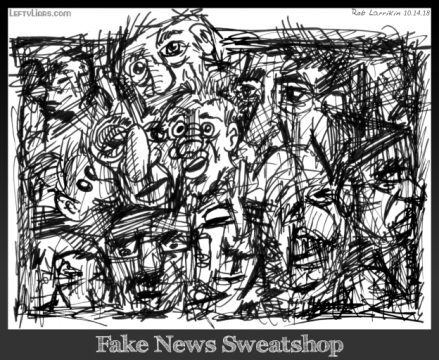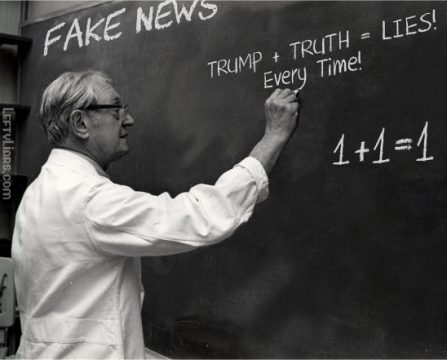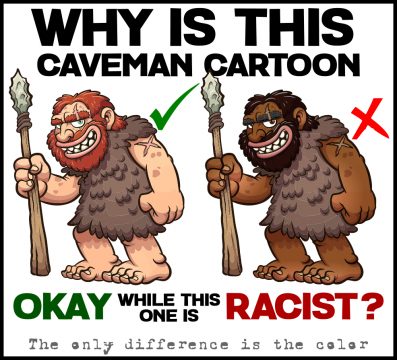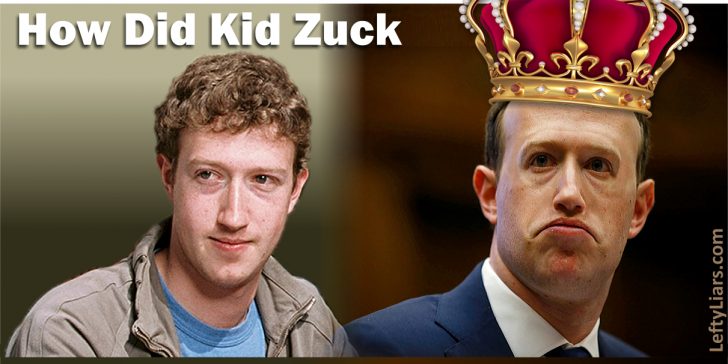
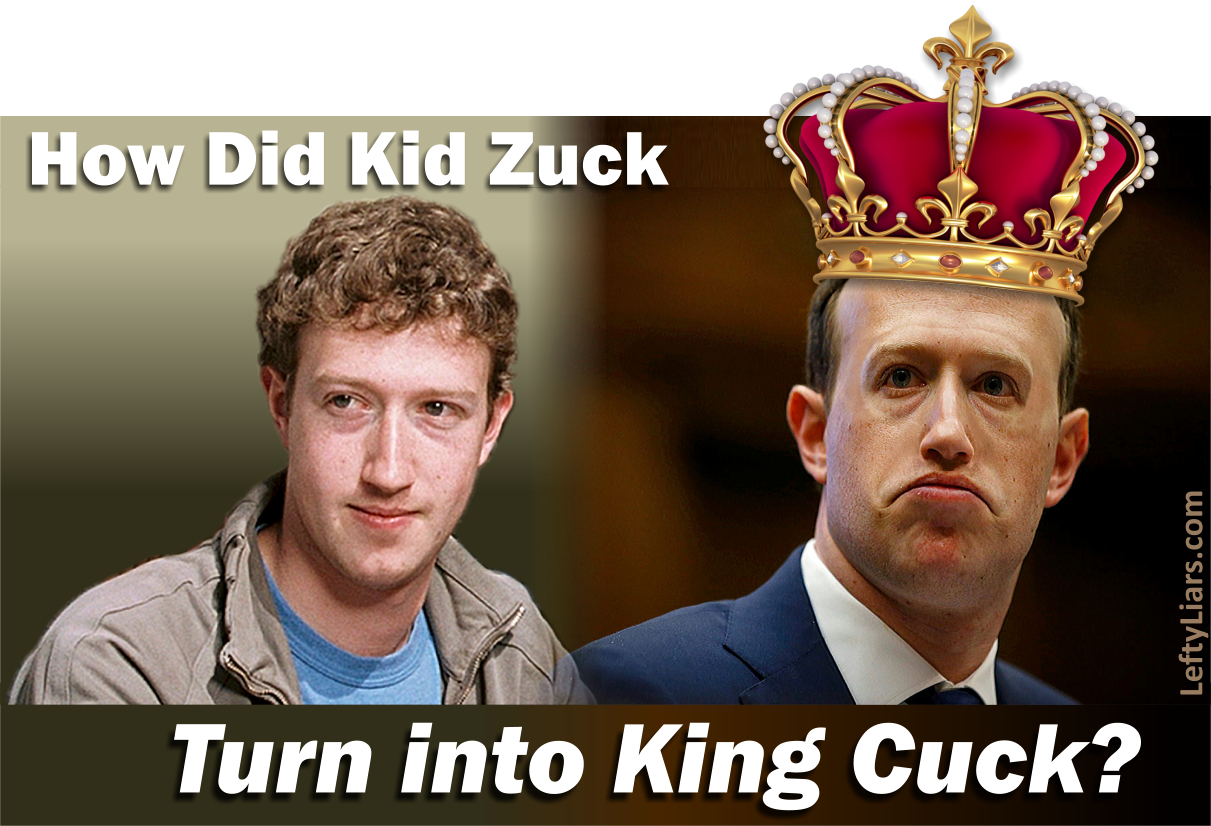
Down through the ages, most entrepreneurs and tycoons were naturally conservative. Any man who worked hard enough to build a substantial business would learn along the way not to trust Lefties, and that socialists and liberals hold back development, destroy jobs, create welfare, overtax business and legalize theft. A coal-mine owner would put up with unions going on strike, hippies chaining themselves to trucks, and global warmists introducing legislation to shut him down.
By contrast, entrepreneurial computer nerds in Silicon Valley were young, liberal, and had little time to learn politics. All their hours were spent building code. As far as politics was concerned, they might overhear others during a ten-minute break in the canteen, talking about how evil Republicans were, or how fabulous Democrats are.
- “Bush is a warmonger.”
- “Obama loves peace.”
- “Democrats care about the poor.”
- “Republicans are greedy.”
These off-the-cuff remarks would comprise their political education. Such geek/moguls would never have to suffer striking unions, chained hippies, or global alarmist nuts holding up their business and costing them a fortune. Their products were uploaded and downloaded. Their money flowed into their bulging bank accounts unhindered. All their workers were left-wing hipsters, and they had no reason to become conservative. As a result, we began to see left-wing billionaires, which is usually a rare oddity.
In the past, innovative products or services were mostly before their time in terms of predictability. Nobody had a clue they were about to happen. Once the internet was born, social networking services were as predictable as pneumatic tires for cars. If you went back in time and liquidated Mark Zuckerberg, it would only be months before some other developer put something similar together. The first of these services to make all the internet virgins around the world feel welcome would be able to rake up billions in cash, buy up competitors along the way and keep their business at the top.
Back in the late ’90s, people were slow to develop a personal online presence. Various social networks provided a solution to this, albeit a kitschy one.
In 1996, while thousands of us were registering domain names through InterNIC ($100 for two years) and uploading websites, most were ignoring this great new resource. Banks, printing companies, and other businesses gleefully avoided the subject. When asked for their email or web-page address, peeved managers would bark, “We do not have email, and nor do we intend to get it.”
“You have to be joking,” a client would protest. “You want me to load this graphic onto a CD and send it to you in a truck when I could just email it?”
“Emails have viruses,” they would reply, haughtily.
“So you have no website, then?”
“No, and I doubt we ever will,” the manager would sneer.

If you viewed Walmart com, in 1996, this is what you would see. Some youngster owned the site I guess, considering that under the heading Interesting Links there was just one link – to ‘AOL Sucks.’ That page was in turn owned by James Egelhof. If that is the same James Egelhof in this 2009 New York Times article; a 31-year-old senior trader at the NY Federal Reserve Bank, then he was 18 when he owned aolsucks.com.
In those days a large company like Walmart allowed some 18-year-old computer nerd to own Walmart.com. Walmart finally made Walmart.com into an online shopping site in 2000, four years late, and that is not surprising. People in those days were suspicious of the web. They thought it would never take off and that it was dangerous. Check out kfc.com in 1998, here – some mob calling themselves The ntr.net Corporation.
With multi-million dollar companies behaving that way who would blame ordinary civilians for not going online to obtain email addresses or websites?
By 2000 it was embarrassing for those without an online presence. Every day they had to say, “I don’t have email yet, or, “No, we don’t have a website, sorry.”
Friends would say, “You can have an email address in two minutes. They’re free. Just go to Yahoo or Hotmail.”
For some people, the last straw was when a potential date might say, “You don’t have email?” and walk away. Annoying someone was one thing, but losing sex over it was just not on. Sick of being internet virgins, they looked for a cheap remedy.

Free Email, Blogs, and Web-pages
Due to the high demand, many free website services sprang up. Tenderfoot web surfers could acquire free email addresses on Yahoo in 1998 or free domains on WordPress in 2005. Hundreds of sites provided free services, ergo millions of internet virgins popped their cherries with free email addies, blogs, and web-pages. Social media websites sprang up too, and the first of these was sixdegrees.com which launched in 1997.
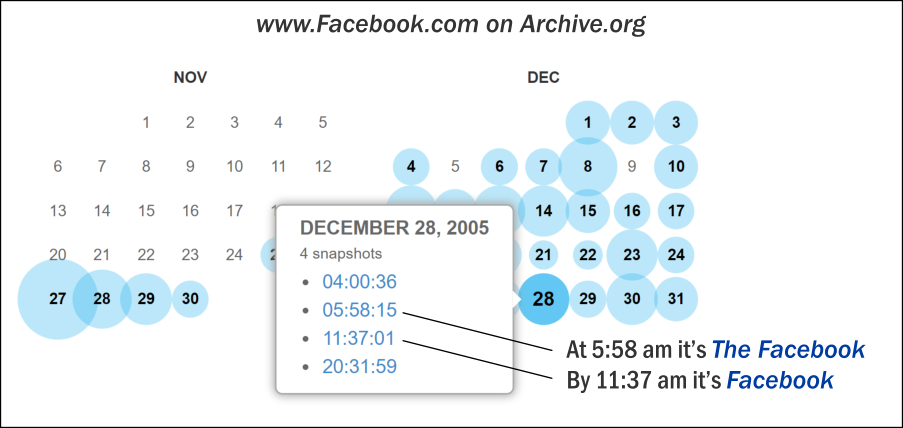
Here is Facebook in August 2005, calling itself Thefacebook, for high school students. By December it was called The Facebook, for high schools and colleges, and on December 28, between 5:58 am and 11:37 am it changed to plain old Facebook. Over the next year or so, it expanded its service to include everyone, not just school kids. Unlike Friendster, it was not a dating site, though many would use it to meet girls anyway. It was also used to advertise one’s business, or as a website with contact details.

Zuckerberg was accused of stealing the idea from the Winklevoss brothers and Divya Narendra, as the article above, from The Boston Globe, 17 Sep 2004, explains. The whole original article can be seen here, or a digital version here.
Quote:
Winklevoss, his twin brother, Cameron, and another friend, Divya Narendra, all of whom graduated from Harvard in the spring, said they conceived of the idea of an online network for Boston-area students more than a year and a half ago. But none was a serious programmer, so they enlisted the help of several students. One of those students, referred by another programmer, was Zuckerberg.
The ConnectU creators said they had an “oral contract” with Zuckerberg to finish building their site. He was not paid to do the work, they said, but he was a full member of their team and would have reaped any future rewards. They said he dragged out the work for more than two months.
The three set up a website quoting from Zuckerberg’s e-mails to them. “I’ll keep you posted as I patch stuff up and it starts to become completely functional,” Zuckerberg e-mailed them Dec. 1. In January, he began to ignore their e-mails, they said. In early February he launched Thefacebook.
The Facebook com took off almost immediately, attracting thousands of users at Harvard and elsewhere, and earning Zuckerberg a flattering profile in the campus newspaper. Feeling burned, the ConnectU founders appealed to Harvard’s disciplinary board and directly to President Lawrence H. Summers, saying Zuckerberg violated the school’s honor code, which prohibits theft and dishonesty. In May, they launched their own site, which has 15,000 members at nearly 200 schools, they said.
Zuckerberg denied the charges.
Getting back to all the masses of internet neophytes, those without an online presence at this stage were the butt of jokes, and we are talking billions. Intellectuals and academics would scoff at them.
“Can I see some examples on your webpage?”
“Er, I don’t have a web page.”
“Okay, can you email me some samples?”
“I don’t have email…”
“Oh. My . God. No email? How about telephones? Do you use those?”
Newbies could not stand their status as cyberspace greenhorns. They looked around for a solution, and Facebook seemed attractive. All they had to do was get online and create their own Facebook page, for free, and voila – problem solved. Pretty soon they were taking selfies and uploading photos of themselves, bragging about how many ‘friends’ they had, and feeling like internet entrepreneurs, but the joke was on them.
They were joining Mark Zuckerberg’s world, and he is a giant Lefty. His software would scan through their computers and keep tabs on everything about them. Pretty soon it would know a great deal about its subscribers. They cared not, even when various media began to let them know.

As early as 2007 some were complaining about Facebook behaving like Big Brother. Millions of others could care less. Most had dozens of “friends,” and felt as though they had transformed magically from internet virgins to internet celebrities.
Website developers would explain to customers that having a Facebook page instead of a personal website was cheap and did not look good, but in many cases, were ignored.
Scene: A New York Tavern. Jeff is drinking beer at the bar when Sally approaches.
Jeff: Howdy Sal.
Sally: Hi Jeff [orders a drink].
Jeff: You’re late today.
Sally: I’ve been online, on my new website. Here [hands him a card].
Jeff: Hmm. www.facebook.com/sally.vroom. Is that it?
Sally: That’s the one. Email too – [email protected].
Jeff: Okay.
Sally: I’ve already drummed up fifty friends.
Jeff: Heh.
Sally: You don’t look very impressed.
Jeff: Don’t you own Vroom Cars? The used car yard?
Sally: Yeah, so?
Jeff: Why didn’t you get vroomcars.com and [email protected]? Your customers would take you more seriously.
Sally: What’s wrong with the Facebook one?
Jeff: Meh. That punk Zuckerberg has enough money. Besides, he’s a Lefty.
Sally: All I know is that I finally have a webpage and email, and it’s free!
Jeff: My sixteen-year-old daughter has a Facebook page. Anyone can have one.
Sally: And?
Jeff: Look at this box of matches. Atlas. What’s their website? Here it is. Atlasmatch.com. They probably have a Facebook page, but first and foremost they have a site that corresponds with their name.
Sally: Jeff, I’m not a match company!
Jeff: Whatever.
Sally: And fifty friends! I didn’t realize I was so popular.
Jeff: I hate to break this to you, but…
Sally: But what?
Jeff: Most of those friends are just usernames who know how to click a thumbs-up symbol, which costs them nothing.
Sally: You think they’re fake friends?
Jeff: You’d be lucky if two are real friends.
Sally: TWO?
Jeff: Yup. Most folk only have one or two real friends, and many have none at all.
Sally: Well, I have fifty!
Jeff: Because Zuckerberg says so? Puh-lease.
Sally: Those likes and thumbs ups are genuine!
Jeff: Are there any thumbs down you can use?
Sally: I haven’t seen any.
Jeff: Know why?
Sally: Um…
Jeff: If they had a down thumb people would use it.
Sally: And?
Jeff: You’d delete them.
Sally: You mean ‘unfriend’ them?
Jeff: Delete, since you can’t ‘unfriend’ a non-friend.
Sally: Get outta here. How would you know I’d delete them?
Jeff: It’s true. You’d come home after a hard day’s work, in a bad mood. You’d check your FB page and see that ten people had commented on your new hair-cut. Seven were thumbs-up, and three were thumbs down. In a flash of anger, you’d delete the three downers. They’d counter by removing you, and their friends might do the same. It would be happening with millions of users. Zuckerberg could lose a fortune.
Sally: You don’t know that.
Jeff: I do, and so does The Zuck.
That was in 2008. How about today? Would Sally still like Facebook? That depends on whether she loves Trump or not. If she does, she must know that Zuckerberg is a Lefty who bans conservatives he dubs ‘dangerous.’ His leftist views combined with enormous power has gone to his head.
In 1887 John Acton said, “Power tends to corrupt, and absolute power corrupts absolutely. Great men are almost always bad men.”
Buying up competition
You might think that competition would soon sort out the problem with a better social network coming along that does not spy on you. You would be right of course, which is why Facebook acquires other companies and shuts them down. In 2014 Facebook bought Branch.com for $15 million. Users of Branch could use the social network Potluck. By June the next year Branch and Potluck were shut down. What else has Facebook gobbled up?
In 2008 they acquired ConnectU and subsequently shut it down. The next year it was FriendFeed for $47.5 million, dissolved in 2015. ShareGrove, acquired in 2010, was shut down a week later. Zenbe.com was next, bought and gone. Beluga and Friend.ly too. Instagram was purchased in 2012, as were Tagtile, Glancee, Lightbox.com, Karma, Face.com, Spool, and Threadsy. Facebook acquired WhatsApp in 2014 along with LiveRail. Endaga, Pebbles, and CrowdTangle followed over the next two years, and tbh in 2017. Bloomsbury AI, Redkix, Vidpresso, and Chainspace were all attained in the last two years. For a full list of 79 companies acquired by or merged into Facebook, see Wikipedia here.
Of course, there is one thing Marc Zuckerberg cannot purchase, and that is your mind. Not yet, at least. You may use your brain to shut down that Facebook page you no longer want, permanently.
I said Facebook was an aberration in the history of business and it is. How many left-wing socialists could become billionaires and then use their company to censor conservative thought on an enormous scale, even influencing elections, the way Zuckerberg is? Very, very few. It is a mutation – a defect in the otherwise healthy stream of businesses that go by. Zuckerberg should be a programmer working for NASA. To me, the man is a freak, out of place and out of whack with reality.
If you are a conservative with a Facebook page, you need to take a long look at yourself in the mirror. What the hell?
How do you get rid of Big Brother?
Go here.


